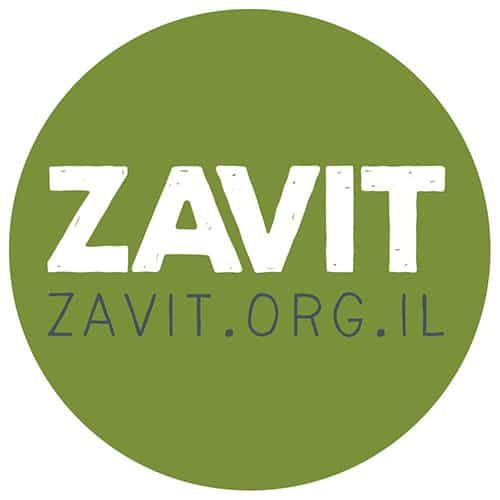 Adriana Cardenas, a medical technologist processes test samples for the coronavirus at the AdventHealth Tampa labs on June 25, 2020 in Tampa, Florida. (Photo by Octavio Jones/Getty Images)
Adriana Cardenas, a medical technologist processes test samples for the coronavirus at the AdventHealth Tampa labs on June 25, 2020 in Tampa, Florida. (Photo by Octavio Jones/Getty Images) Racheli Wacks, ZAVIT* Environment and Science News Agency
Informed decision-making depends on reliable data – but there seems to be a shortage of such information in Israel. Experts explain what is missing in the decision-making process during the corona crisis.
There is no doubt that modern science has advanced the field of medicine more than any other factor. The development of drugs, vaccines, and effective treatments for diseases and their prevention has saved countless people’s lives and changed the course of human history fundamentally.
Today, in the face of the novel coronavirus (SARS-CoV-2) that has been disrupting our lives for already six months, doctors make newspaper headlines, and “epidemiology” is no longer a bad word. However, often it seems that science does not occupy an important enough place in political decision-making, and the rationale behind some of the new measures is questioned even by professionals.
What are the Israeli government’s decisions concerning the policy of dealing with COVID-19 based on?
“This is a great question, the answer to which is completely unclear,” says Dr. Uri Lerner, the Professional Director of the non-profit association Midaat – For Informed Health. “There is not much connection between the decisions that are made and what we see in the world.”
“It is not clear where government members get the information they rely on to make decisions,” says Dr. Ori Sharon, Deputy Director of the Israeli Society of Ecology and Environmental Sciences, and Lecturer in Law and Environmental Policy at the Faculty of Law at Bar Ilan University.
A name that often comes up as a source of information on the subject is the National Security Headquarters (National Security Council). “This is a body whose role is to build the strategic security policy of the State of Israel. It is a security council and not a medical one. Its people have no certification to deal with medical problems – But the security council is in the prime minister’s office. Hence, the prime minister has full control over it, “says Sharon.
300,000 people, one epidemiologist
“No data is published about the locations of infections,” says Lerner.
“The Ministry of Health publishes some data that includes the distribution of morbidity by age and locality, but there are no details on how many infections occur in different places like schools and restaurants, for example. There is no segmentation of the data that makes it possible to obtain any epidemiological insight.”
Recently, the Ministry of Health submitted to the Corona Committee of the Knesset certain data on the infection locations, indicating that the most significant source of infection is actually in the home. According to Sharon, these data are also unsatisfactory.
“One should pay attention to the number of participants in the research group: 2,227,” he says. “That’s almost the number of people infected in one day. How can you deduce something from that?”
According to Lerner, these data, according to which 67 percent of patients became infected at home, are fundamentally insufficient. “Infections at home are not important information,” he says. “To illustrate, let’s say there is a meeting at work, and one person is sick and infects four more, and each of these workers infects four family members. Now you have 20 infected, four of them at work and 16 at home, but there is an intrinsic bias here – you have to understand where the infection is. This is the way to stop the infection.”
A primary reason for the lack of data is the low number of epidemiological researchers in Israel compared to other countries. According to a report published by the Israel Defense Forces, one researcher worked in Israel per 300,000 people (1: 10,000 after the recent reinforcement, compared to 1 in 4,000 in Germany, 1 in 6,200 in New York and 1 in 2,200 in England. 4,000 in Germany, 1 in 6,200 in New York and 1 in 2,200 in England). “In other countries, where the number of epidemiological researchers is very high, they are able to identify centers of infection and set rules for them quickly,” says Sharon.
According to a position paper sent by the Association of Public Health Physicians to the Corona Committee in the Knesset, the raw data and the results of the epidemiological investigations, as they exist, are not adequately communicated to the public and other relevant parties. “We have repeatedly demanded that the raw data and the results of epidemiological investigations be made available to the public and provided to epidemiologists in Israel so that morbidity trends and risk factors can be analyzed,” the position paper says. “To date, this data has not been provided.”
According to Lerner, in other countries, access to public information is much better than in Israel. “Singapore, for example, has created a very detailed infection map, where the public can see the chain of infections, and understand exactly where people were infected and which sites had more infections than others,” he says.
“Half arbitrary, half political”
“One of the problems in Israel is that it is not the professional echelon that conducts the professional discourse, but the political echelon,” says Sharon.
“As long as the information about the Corona infection does not exist properly, the decisions are half-arbitrary and half-political,” Lerner says. “The big delay in the decision to close the synagogues was political. It also took a long time until those who came from the United States were forced into quarantine – it is also political.”
No epidemiological justification
The new restrictions announced by the Government, which include the closure of restaurants, have provoked objections among public health professionals.
“No appearances, explanations, opinions or data were provided that specifically support these measures and prove their usefulness,” the position paper sent by the Association of Public Health Physicians read.
“It seems that some of the measures chosen may even increase the risk of infection.” It was further stated that “it appears that the Government’s decision was made in haste, without sufficient consultation and appropriate care, without regular staff work, without transparency and not based on data. From an epidemiological point of view, we do not see any justification for a hasty and unfounded decision-making process.”
“There is indeed a lot of scientific uncertainty about the routes of infection, but we do have information on the main routes, information that can form the basis for more informed policy,” says Dr. Maya Negev, Head of Health Systems Policy and Administration Program University of Haifa.
“There is no logic in banning the use of open spaces like beaches, for instance. The chances of contracting the disease outside are very low if maintaining a distance of 2 meters, “she says. “The ban on public open spaces harms physical health and mental health, to which a visit to a nature surrounding contributes greatly – especially in a period of social and economic distress.”
Transparency is key
“We need a professional body that will manage the corona issues, that will include all relevant scientists, and gets enough resources,” Sharon stresses.
Will Prof. Gabi Barbash, recently appointed COVID-19 task force chief, fulfill this position? “Only if they give him all the powers and subordinate all the bodies under him,” says Sharon.
“Relevant information must be properly collected and documented in a way that allows accurate inferences about where people got infected,” says Lerner.
“This will make it possible to define and specify necessary adjustments for places like businesses, workplaces, and public transportation – not to determine what percentage of employees will come to the workplace, but to understand how much personal space is needed for each employee to reduce the infection risk optimally.
With such guidelines, it will be possible to allow businesses to survive and stimulate the economy – without increasing the risk of exposure,” he adds.
According to Lerner, decision-making based on data and transparency is the way to achieve public cooperation. “This is a well-known insight even regardless of the Coronavirus: when the public does not understand why a particular decision was made, they will not listen to it,” he concludes.























 More news and opinions than at a Shabbat dinner, right in your inbox.
More news and opinions than at a Shabbat dinner, right in your inbox.